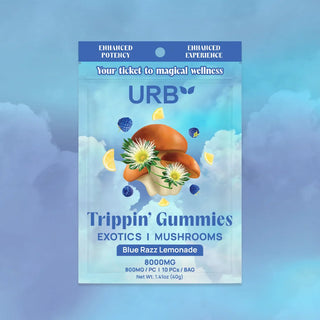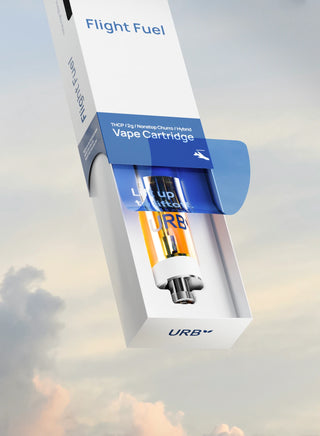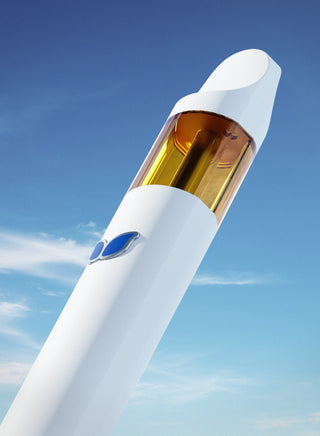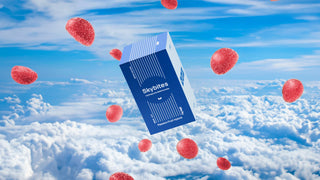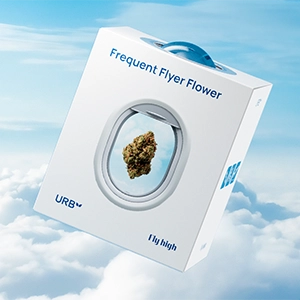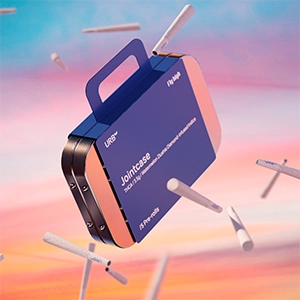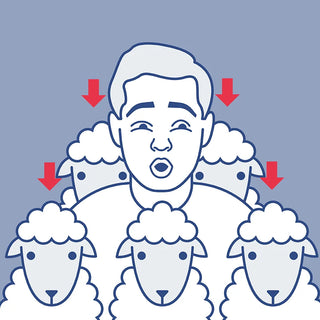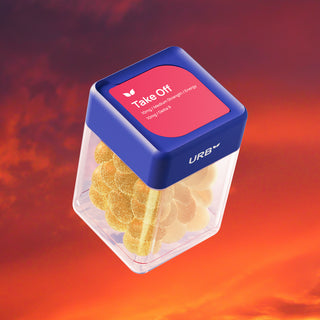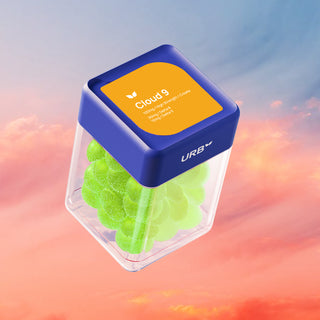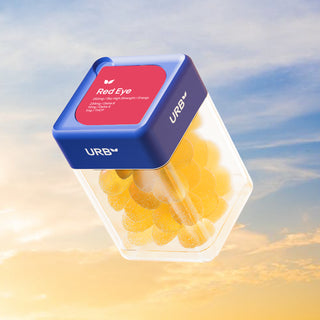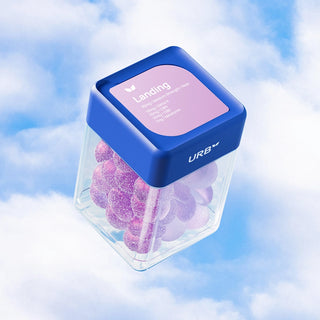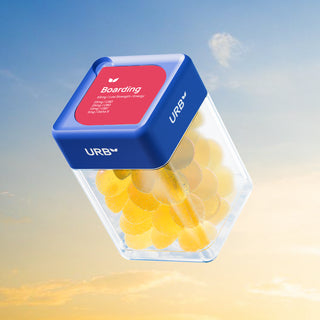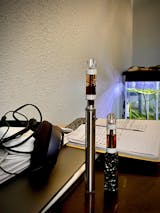In the decade since we first brought our own cutting-edge cannabinoid products to the market, a lot has changed. THC and CBD may still rule the roost, but there’s growing awareness of a whole new crop of cannabis compounds. One of the most misunderstood? CBN.
This cannabinoid first grabbed the limelight when it became known as the “sleep” cannabinoid. In a very short span of time, a whole crop of CBN products appeared on the market, all promising a cure for sleepless nights. Though there’s some evidence of CBN’s potential soothing benefits, we know there’s much more to the story, so we’re cutting through the noise and getting to what really matters.
What This Post Will Cover
This guide to CBN is designed to help you differentiate between fact and fiction and gain a deeper understanding of this fascinating cannabis compound. Along the way, we’ll answer all your questions, including:
-
What is CBN?
-
Is CBN legal?
-
What does CBN feel like?
-
What are some potential CBN benefits?
-
Are there side effects to CBN?
…and so much more. Let’s get to it.
What Is CBN?
CBN, or cannabinol, was the first cannabinoid ever to be identified by researchers in 1896. At first, it was believed to be the source of the cannabis plant’s psychoactivity, though we now know that it’s THC, the primary psychoactive cannabinoid in cannabis. CBN isn’t merely a different version of THC or even CBD. It’s really its own vibe: a cannabinoid whose effects and potential benefits may not be as intense as some of the better-known compounds but hold very distinct and valuable qualities.

It’s fascinating for many reasons, but one of the principal ones is that it’s created primarily through the aging process known as oxidation. CBN only appears in trace amounts in fresh cannabis and develops over time as cannabis is aged, a change that’s detectable both in flower and extract form.
CBN also has a lower binding affinity than THC with our body’s CB1 and CB2 receptors, which are vital cells in our endocannabinoid system (ECS). This regulatory network helps us maintain essential functions, such as:
-
Memory
-
Immune function
-
Pain response
-
Sleep
CBN’s lower binding affinity means that, compared with THC, its psychoactive effects are only fairly mild.
Is CBN Legal?
From a legal viewpoint, cannabinoids such as CBN occupy a gray area. Under the 2018 Farm Bill, hemp products that contain <0.3% THC by weight are federally legal. But some states broadly ban the sale of hemp products, even if they’re not intoxicating. If you’re in doubt, consult the local laws where you live to see if CBN in weed or hemp is allowed.
To produce CBN, cannabis plants are either aged or—far more commonly—CBD is subjected to a two-step process in the laboratory that results in safe, chemically pure CBN without any intoxicating THC.
For extra precaution, we ensure that every product we make at URB, CBN blends included, meets all federal legal standards and undergoes third-party lab testing for quality, potency, and purity. Certificates of Analysis (COAs) are always available, so you can verify exactly what’s inside.
What Does CBN Feel Like?
We get a large volume of customer emails, and many of them ask: “Does CBN make you high?” To be clear, the CBN cannabinoid effects aren’t usually described as an intense, euphoric ride. If that’s what you’re looking for, start with cannabinoids like THCP or HHCP.
Instead, CBN is associated with soothing, body-centered sensations. You might think of it as the weighted blanket for your endocannabinoid system, lulling you into a gentle state of calm that helps many people find deeper rest.
CBN vs THC vs CBD
How does the CBN effect compare with other cannabinoids? It’s tempting to describe it as a milder than Delta 8 THC, a form of Delta 9 THC generally regarded as being gentler and more uplifting than its big brother. To compare, CBN has even milder psychoactivity and is associated with sedative, relaxing effects.
Then there’s CBD, the cannabinoid associated with a wide range of potential therapeutic benefits. Unlike CBD, CBN may have a lightly intoxicating effect at higher doses. While CBD can be relaxing at certain doses, it’s generally not reported as sedative in the way CBN is.
Potential CBN Benefits: What Does the Research Say?
Though it’s widely considered the sleep cannabinoid, CBN’s potential health benefits go beyond a better night of slumber. While the cannabinoid hasn’t been studied nearly as much as THC, CBD, or other compounds, the indications thus far are that there’s more to CBN than meets the eye.
-
Sleep Support: A landmark 2024 double-blind study found that CBN reduced nighttime awakenings and improved overall sleep quality. A follow-up went further, identifying exact mechanisms that may link CBN to enhanced rest and reduced anxiety.
-
Anti-Inflammatory Potential: A 2023 study suggested that CBN may modulate inflammation—an effect with potential implications for skin health, oxidative stress, and more.
-
Brain Health Support: Early research points to CBN’s potential in supporting brain health, particularly age-related cognitive decline. Studies hint at improved memory and spatial learning, positioning CBN as a cannabinoid to watch in the neuro wellness space.
Taken together, these findings point to CBN as a versatile cannabinoid with unique properties worth exploring. As research deepens, its role in wellness routines is only becoming more compelling, especially for those seeking calm, clarity, and cognitive support.
Is CBN Safe? Are There Side Effects?
Given how new it is to the market, it’s no surprise some wonder about the potential side effects of CBN. While there isn’t much research, here’s what we know so far: While the user-reported side effects of CBN appear to be fairly rare and mild, they do exist.
The most common one is drowsiness the morning after nighttime use, or what might be termed a “cannabinoid hangover.” That might not entirely be a CBN side effect, however. It appears to occur most often when the cannabinoid is combined with THC and/or melatonin, the popular sleep hormone supplement.
Cottonmouth may also be felt after CBN consumption, which is the dry tongue and lips associated with many cannabinoids, not just CBN. You may also experience a touch of the munchies with a boost in appetite, a well-known side effect of CBN’s cousin, THC.
CBN and the Entourage Effect
CBN was the first cannabinoid ever isolated, but it took researchers quite a while to stumble on one of the most important aspects of cannabis: the idea of the entourage effect. It’s thought that when taken together, cannabinoids and terpenes interact to modulate and even strengthen each other’s effects.
These interactions happen between multiple cannabis compounds, including CBN. One standout pairing? CBN and CBD. Together, they may promote even more relaxation and restfulness than either one would on its own. Add in targeted terpenes, and the experience becomes even more refined.
That’s exactly the thinking behind our Landing Skybite gummies. By blending CBN with CBD, Delta-9 THC, and the calming terpene linalool, we’ve created a flavor-forward gummy that delivers a smooth descent into rest, gentle euphoria, and a sense of balance you can feel every time you land.
Where to Find CBN Products
CBN is rarely a solo act. Because it plays so well with others, you’ll typically find it in blends with other cannabinoids, like Delta-9 THC or CBD, to amplify relaxation, promote calm, and shape more personalized cannabis experiences.

Vapes
Since they dispense cannabinoids in the form of a potent but cooling mist, vapes are a fun, simple, and user-friendly way to access CBN. Our Vape-Cay London Disposable Vape 3ML harnesses it in a discreet and fast-acting way. With this format, you can expect the effects to come on within a couple of minutes and last from between 1 and 2 hours.
Edibles
We harness the naturally calming power of CBN in gummies, where they lend their subtly relaxing effects to these shelf-stable, discreet—and always delicious—edibles. You’ll find it in our Gummy Getaway Dreamland, where it combines with Delta 9, melatonin, and other select botanicals and adaptogens to help ease you into the most restorative of slumbers. Remember that while edibles take longer to take effect, the effects can last between 2 and 4 hours (in some cases, even longer).
Tinctures, Capsules & Beyond
Beyond URB’s product line, you’ll also find CBN in tinctures and capsules. These formats offer easy dosing and are often used in wellness routines to target sleep or stress. Tinctures absorb sublingually for faster results than edibles, while capsules are ideal for those who prefer a no-fuss approach.
No matter the format, CBN works best when paired, and URB’s formulations are crafted to help you find the right blend for every destination.
CBN Dosage: How Much Should You Take?
There’s no standard dose for CBN since the experience of cannabinoids will depend on your own biology and genetic makeup. However, we always recommend starting with a small amount—about 2.5mg to 5mg—and assessing the effects before taking more. Speaking of which, this is why precisely dosed formats such as our CBN gummies are so handy, especially for those new to the art and science of cannabis dosing.
Want to get the most out of your CBN experience? Start a cannabinoid journal. Tracking your dose, timing, effects, and duration can help you dial in what works best for your body and spot patterns over time. It’s a simple way to personalize your routine and fine-tune how CBN fits into your day or night.
Will CBN Show Up on a Drug Test?
It might. While there’s no drug test designed specifically for CBN, its chemical structure is similar to THC—CBN is essentially an aged form of THC—and both can produce overlapping metabolites in the body. That means CBN has the potential to trigger a positive result, especially on tests that screen for THC metabolites in urine, blood, saliva, or hair.
There’s also the factor of formulation. Since CBN is often blended with other cannabinoids, including trace amounts of Delta-9, there’s a chance that a product you’re using could contain small, but detectable, levels of THC.
If you’re subject to drug testing and want to play it safe, we recommend avoiding the use of CBN and blended products.
CBN, the URB Way: Gentle Calm for Your Routine
If you’ve been searching for a mellow, non-intoxicating cannabinoid with lots of potential, CBN might be what you’ve been waiting for. Perfect for unwinding, finding greater balance, or ending your day without disrupting the vibe, CBN’s an all-natural option to support your health and wellness goals. If that sounds like your ideal destination, come find the perfect blend at URB.
